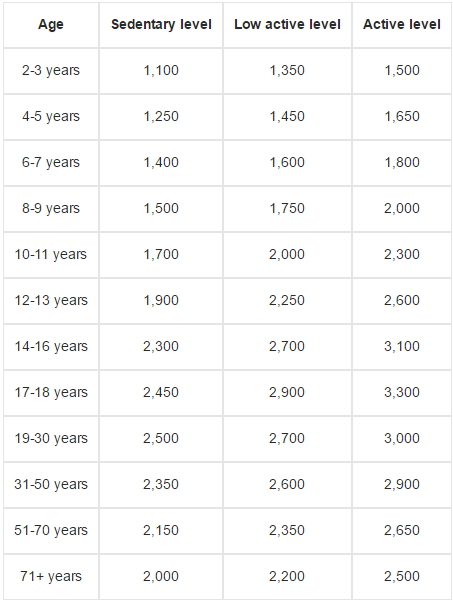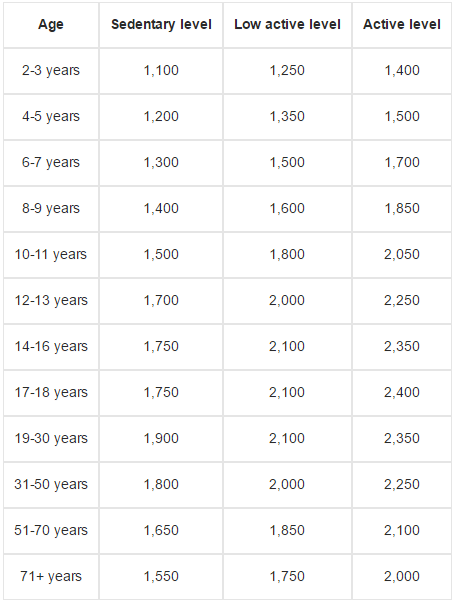You need to eat to stay healthy. But how much is enough? Given the staggering number of people struggling with obesity in the US and the world over, it is imperative to determine how much food you should eat. The amount of food you should eat varies based on your daily calorie intake requirement. The idea is to consume just enough calories to take you through the day. If you want to lose weight, you should consume fewer calories than you need every day. Below is a guide on the burning question – how much should I eat?

How Much Food Should You Eat?
The type of food is also a factor to consider when deciding on "how much food should I eat?" Here is a breakdown of the number of servings people of various ages and sex should consume.
| Age | Fruit and Vegetables | Grains | Milk and Alternatives | Meat and Alternatives | |
| 2-3 | 4 | 3 | 2 | 1 | |
| 4-8 | 5 | 4 | 2 | 1 | |
| 9-13 | 6 | 6 | 3-4 | 1-2 | |
| 14-18 | Male | 8 | 7 | 3-4 | 3 |
| Female | 7 | 6 | 3-4 | 2 | |
| 19-50 | Male | 8-10 | 8 | 2 | 3 |
| Female | 7-8 | 6-7 | 2 | 2 | |
| 51+ | Male | 7 | 7 | 3 | 3 |
| Female | 7 | 6 | 3 | 3 | |
Note: While you should try to stick to the stipulated servings or calories, there are considerations that may give you leeway to the amount of food you eat. For example, if you have lots of fiber in your food, you can eat more calories than if your food contains little or no fiber. So, how much food should you eat? It also depends on the type of foods and your lifestyle. You can also tailor your diet towards your eating goals. For example, you might want to lose weight. Keep reading to find how much to eat under this circumstance.
How Much Food Should I Eat to Lose Weight?
You can use this calculator to determine the number of calories you should eat to reach a specific weight goal. Besides the amount of food to eat, you may also want to know how to eat to lose weight.
Eat More Protein. Protein is key in your weight loss journey. It helps increase your metabolic rate and reduces your appetite. Protein generally requires more energy to breakdown. This increases the number of calories burned by up to 100 calories per day. Studies have shown that people who have 30% of their calorie source as protein, generally eat 441 fewer calories every day. Protein also helps fight cravings, which is a nice touch for those who can’t stop eating junk food.
Avoid Sugary Soft Drinks. Eliminating liquid calories from your diet will go a long way into helping you lose some weight. Avoid drinks such as chocolate milk, sodas, and other sugary beverages. Research has shown that these are the most fattening foods in existence today since the brain doesn’t register that you have taken a shot of calorie-rich foods in the same way it does solid calories. This makes it impossible for your body to automatically compensate by making you eat less of other things.
Drink Lots of Water. Increasing your water intake can go a long way in shedding off excess weight. Water helps increase the number of calories you burn for up to 90 minutes. You will burn about 96 more calories per day by taking 8 glasses of water per day. Drinking plenty of water before meals also helps suppress your appetite. Combine taking water with a healthy diet and you are bound to see results within a few weeks.
Do Exercise. When you cut down on your calorie intake, your body adapts to the new conditions by reducing the number of calories you burn per day. This is why calorie restriction for the long term usually ends up reducing metabolism. It can also lead to loss of muscle mass. To prevent this from happening, you should incorporate exercise and weight lifting into your weight loss plan. If you can’t go to the gym, do body weight exercises like sit ups and push-ups. You should also incorporate some cardio in your workout. Jog, swim or walk to help you maintain optimum health.
Cut Down on Carbs and Sugars. How much food should I eat when I want to cut down on my weight? Remember to reduce the amount of carbs and sugars you take. When you do this, you will bring down your appetite and eat fewer calories. By eating a low-carb diet, studies have shown that you can lose up to 3 times as much weight as being on a low fat diet. If you are unable to cut down on the carbs for some reason, then make sure you incorporate fiber rich carbohydrate sources. In this way, you won’t have to keep counting the calories.




View All Comments /Add Comment